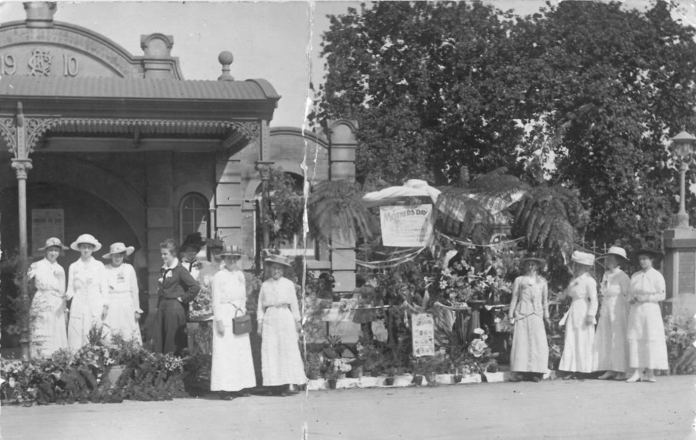Source: Auckland Council
Auckland women didn’t get their own public toilets until 1910, nearly 40 years after men. Before then, women were expected to use the toilets in shops – or wait until they got home.
When Grafton Bridge opened, so did the Grafton Bridge Toilets, with a dedicated section for women. Even then, it was argued that the facilities at the public library and at the Smith and Caughey department store were adequate, according to Hannah Alleyne, Service & Asset Planning Team Leader for Auckland Council.
Edwardian Baroque in style and designed by city engineer Walter Ernest Busch, the Grafton Bridge Toilets – situated on Symonds St beside the bridge – were also the first public toilets to incorporate a tram shelter. Inconveniently for the ladies, their toilet entrance was located inside the tram shelter, and they had to push past people waiting there for trams to get to the loo.
Protecting our heritage
Now being refurbished, the toilets are recognised as an important piece of Auckland heritage. They reflect both architectural and social stylings of the time, when access to public toilets was a women’s rights issue. Adding insult to injury was the fact that women had to pay a penny or more to use public facilities while men’s loos were free of charge.
Work on the Grafton Bridge Toilets refurbishment, including earthquake strengthening, began in May 2021 and will reopen before Christmas. Lockdown restrictions have hampered progress though, and it is unlikely they will be ready by World Toilet Day on November 19. Salmon Reed Architects is leading the project. While the building’s brick exterior is largely as it was in 1910, the interior has undergone many alterations over the years.
In the 1940s the women’s toilets were closed and the internal layout changed. The walls were covered in ceramic tiling in the 1970s. In the 90s, the women’s toilets were reinstated. Then interior layout and surfaces were changed again in 2000.
During restoration, original ceramic tiles from 1910 were discovered. They have been restored and will feature in the new design recognising the building’s heritage.
Women’s rights fight
In 1927, 17 years after the Grafton Bridge Toilets opened, the first women-only toilets opened in Karangahape Rd after lobbying from the National Council of Women. Ellen Melville, Auckland’s (indeed New Zealand’s) first woman councillor, was a prominent supporter. The toilets were in a purpose-built building that also featured a lounge, changing room, mothers’ room and a place to store prams. It was demolished in 2000.
In 1936 Auckland men petitioned for 24-hour access to their public toilets. Meanwhile, women’s toilets had reduced hours, especially at the weekend. On a Sunday, women struggled to find an open public toilet until the afternoon, according to Alleyne, because it was assumed they would be at church or home, making Sunday lunch – not out and about.
Incredibly, by 1949 there were still only six public women’s toilets in Auckland compared to 20 for men. The first unisex toilet opened in Remuera in 1974.



